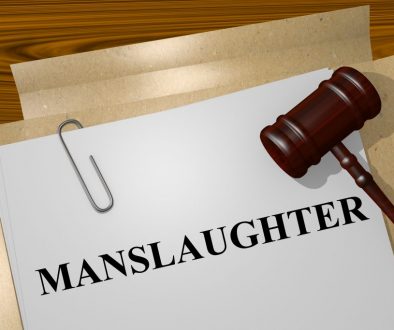Self Defense Claims Stemming From Pistorious South African Trial
The trial of Oscar Pistorius moves into its third week in Pretoria, South Africa and the case continues to receive international headlines because of his former Olympian’s notoriety. Pistorius, aka “The Blade Runner” represented South Africa in the Olympics despite being a double amputee. His story served as inspiration to millions of handicapped persons and continues to do so despite the criminal allegations against him. Pistorius is charged with the murder of his girlfriend, South African model, Reeva Steenkamp. While Pistorius has admitted that he shot and killed her, he maintains that the killing was accidental and that he believed her to be an intruder in his home. Evidence removed from the home included a bathroom door which Pistorius allegedly shot through with three hollow point bullets, killing Steenkamp instantly.
The outcome of this trial will have little effect on the issue of self-defense in the United States but it serves as a strong example of the stark difference between the concept under our laws and those within South Africa. In South Africa, incredibly, it is illegal to shoot an intruder in your home unless that intruder poses a threat to you (i.e. approaches with a weapon). This issue presents the Pistorius defense team with a major problem as Steenkamp was unarmed. Further, the defense concedes that Pistorius shot through a door, which prevented him from identifying not only the victim’s identity but also the threat level element which South African law requires. The case against Pistorius is circumstantial, as he and his alleged victim were alone, but as in the United States, circumstantial evidence is enough to convict someone of murder.
Pistorius’s defense would have higher probability of success in the United States as the concept self-defense is usually the strongest if the force exerted is done so within one’s own home. Pennsylvania, for example, like other jurisdictions in our country, has always provided individuals with the legal right to employ the use of deadly force to defend themselves and others within their home. Most states memorialize this legal principal known as the Castle Doctrine in a statute which is commonly referred to as the “Stand Your Ground” Law.
Unlike South Africa, there is no requirement that a person demonstrate a threat of harm, especially in one’s own home. Many states, including Pennsylvania, have actually expanded “Stand Your Ground” to allow citizens to use deadly force in areas beyond their home such as driveways and city streets. This use of deadly force in these areas is defendable as a justifiable homicide provided that the actual justification exists.
Justifiable homicide was the major issue in the Trayvon Martin case and George Zimmerman’s acquittal. While the facts in the Martin case are entirely different, the verdict in that case may have been very different if Zimmerman’s defense team had to overcome what Pistorius must overcome here. Unlike South Africa, the concept of self-defense is deeply rooted in our nation’s founding and memorialized in our 2nd Amendment. While opponents to the expanded “Stand Your Ground” argue that it opens the door to further violence, many believe it simply affirms a citizen’s right of self-defense under the Constitution.
Contact Our Criminal Defense Lawyers in PA & NJ
Please click here to contact our Philadelphia criminal defense lawyers. We offer free case reviews and serve the following areas in Pennsylvania and New Jersey, Atlantic City, Camden, Cherry Hill, Chester, Conshohocken, Doylestown, Media, Norristown, Philadelphi


